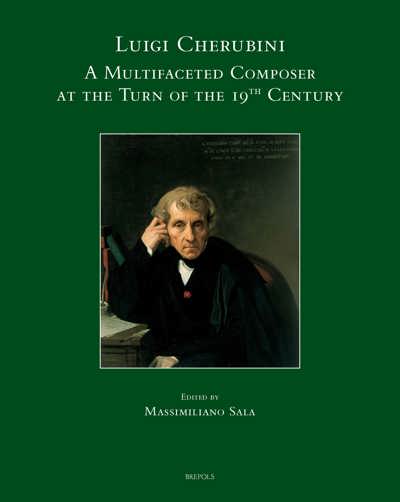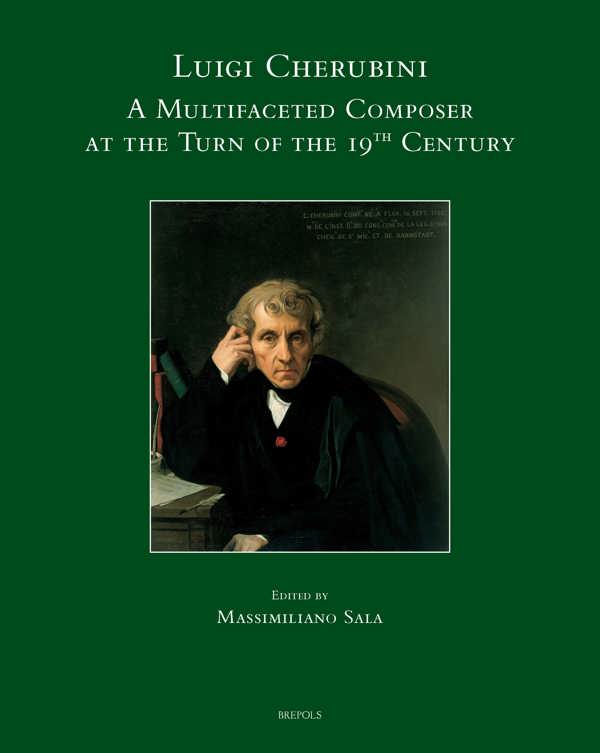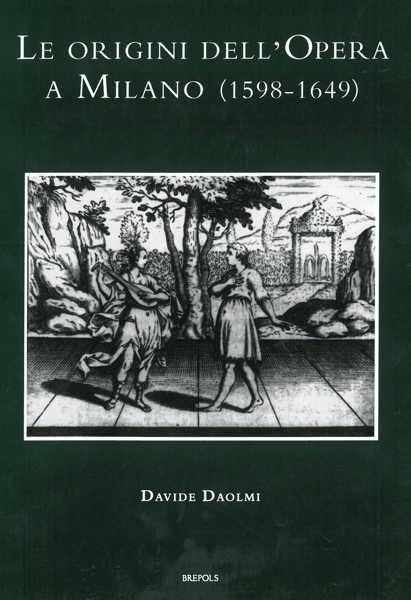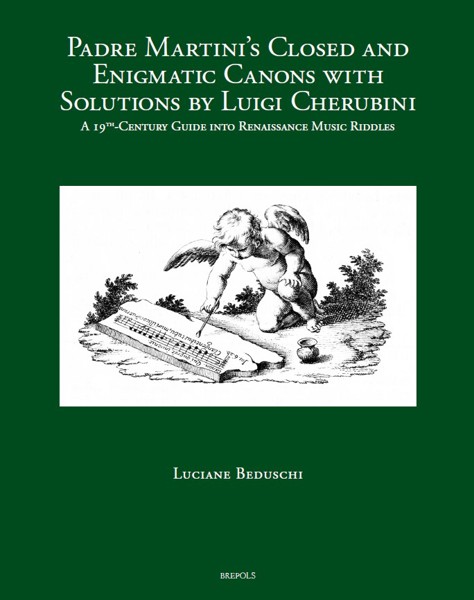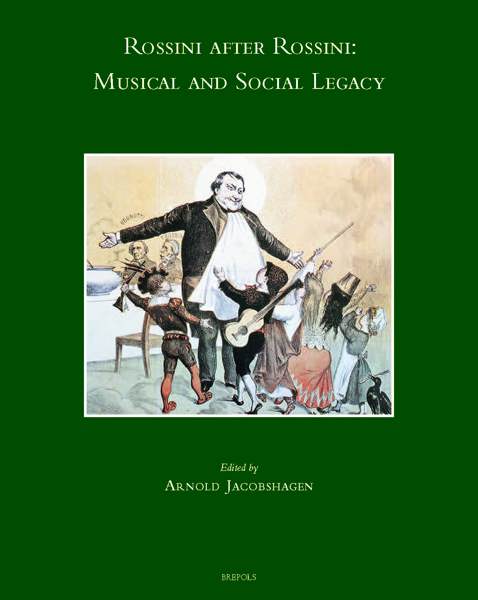
- Pages: x + 493 p.
- Size:210 x 270 mm
- Language(s):English, Italian, French
- Publication Year:2021
- € 120,00 EXCL. VAT RETAIL PRICE
- ISBN: 978-2-503-59100-1
- Hardback
- Available
This volume investigates the various faces of Luigi Cherubini.
“This volume marks a great step forward in our knowledge of a composer who became too French for the Italians, too German for the French, too international for the Germans, and who is now reclaimed by some Italians on purely nationalist grounds. Researching Cherubini requires multilingual expertise, of which the present volume provides impressive testimony.” (Michael Fend, in Music & Letters, 2023, p. 652)
MASSIMILIANO SALA is Vice President of the Centro Studi Opera Omnia Luigi Boccherini (Lucca) and Secretary Treasurer of the Italian National Edition of Pietro Antonio Locatelli’s Complete Works. On the Board of the Scholarly Committees of the Italian National Edition of Muzio Clementi’s Complete Works and Italian National Edition of Luigi Boccherini’s Complete Works, he is a founder of Ad Parnassum Journal. His publications include writings on eighteenth- to twentieth-centuries music.
This volume investigates Luigi Cherubini with the aim of providing a picture of the various faces that a composer and his output could present to European society at the turn of the nineteenth century; a society in which the composer, no longer tied to a patron or a court, tried to integrate himself as a participant in the labor market by finding new, coexisting forms of subsistence, thereby becoming a pre-eminent figure in the industrial and commercial world of the time. Additionally, the volume aims to deepen understanding of the composer’s output in light of the political and social upheavals that took place during his long life, from the French Revolution to the threshold of the Springtime of the People.
Massimiliano Sala
Preface
Vocal and Sacred Music
Bella Brover-Lubovsky
Cherubini’s Madrigal Ninfa crudel and the Legacy of the Scuola dei rivolti
Michael Pauser
Apart from the Masses: Luigi Cherubini’s Other Sacred Music
Galliano Ciliberti
Luigi Cherubini e la Chapelle royale (1816-1830)
Music Theatre
Helen Geyer
Komplex und ambivalent? – Überlegungen zu strukturellen und ästhetischen Eigentümlichkeiten in Cherubinis Opern der 1780er und 1790er Jahre
Lorenzo Mattei
Il Metastasio infranciosato di Marmontel e Cherubini
Francesca Menchelli-Buttini
Luigi Cherubini’s Adriano in Siria (Leghorn 1782)
Roberto Scoccimarro
«À la foi savante et simple». I morceaux d’ensembles negli opéras-comiques di Cherubini in un atto: note su strutture formali e questioni drammaturgiche
Heiko Cullmann
Spielarten einer Komposition Luigi Cherubinis Les Deux Journées
Marco Beghelli
Ali-Baba, il Falstaff di Cherubini
Cherubini Pedagogue
Luciane Beduschi
Luigi Cherubini’s Solutions for Padre Martini’s Closed and Enigmatic Canons: An Unpublished (and Overlooked) Pedagogical Collection
Frédéric de La Grandville
Cherubini, inspecteur de l’enseignement au Conservatoire de musique de Paris (1795-1815)
Reception
Matthieu Cailliez
Étude comparée de l’influence musicale et institutionnelle de Cherubini en France et dans le monde germanique entre 1787 et 1842 375
Giada Viviani
«A Sort of Palladio»: Richard Wagner’s Reception of Luigi Cherubini
A Case Study
Maria Teresa Arfini
Il Capriccio o Studio in Do maggiore per fortepiano di Luigi Cherubini: un capolavoro o un esperimento accantonato?
Abstracts and Biographies
Index of Names
